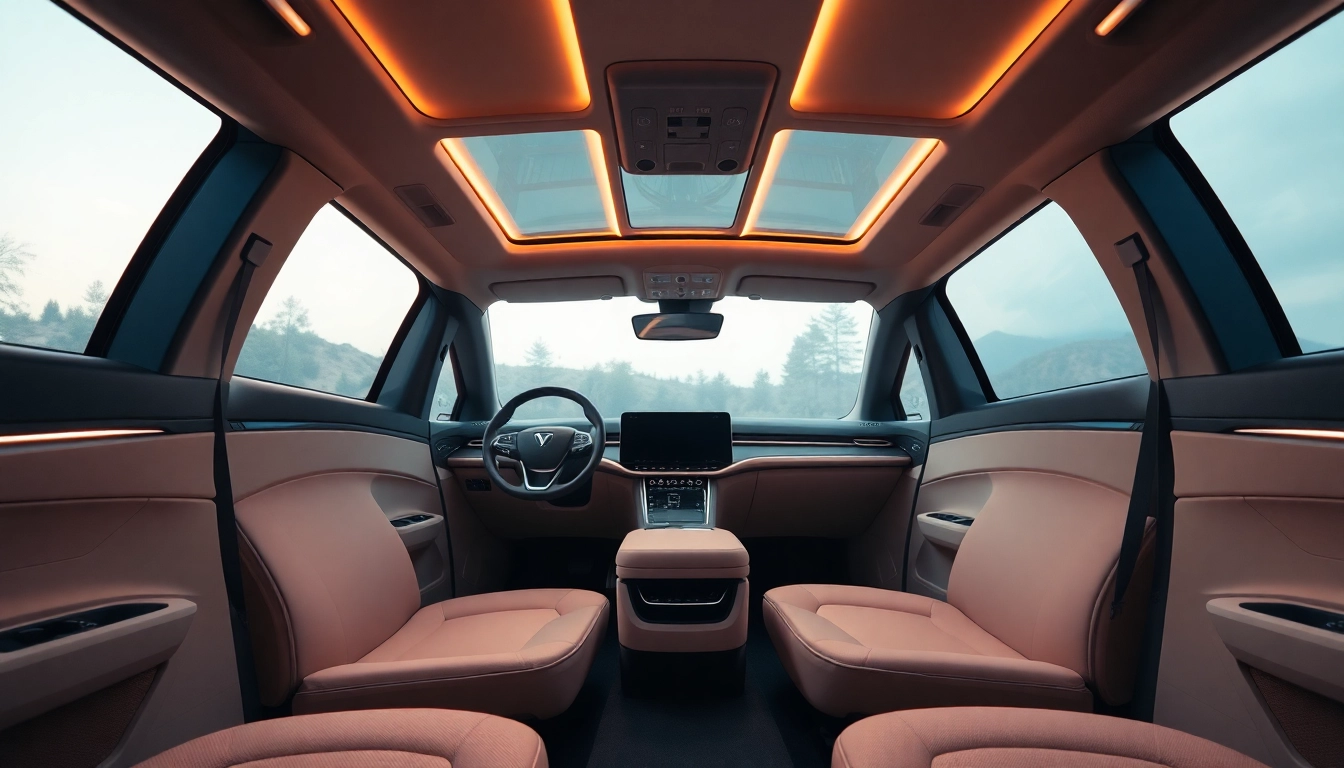Understanding the Concept of the Perfect Car
When searching for the perfect car, it’s essential to define what “perfect” means in the context of automobiles. Perfection, as we perceive it, varies from one individual to another. For some, it embodies luxury and advanced technology, while for others, it reflects practicality and value for money. This subjective nature plays a crucial role in how we evaluate vehicles and ultimately decide what makes a car ideal for our needs.
The Subjective Nature of Perfection in Autos
The automotive world is rich with diversity; cars can range from compact sedans to high-performance supercars, each with distinct advantages and shortcomings. The term “perfect” car can invoke images of a flawless machine, but since every driver has unique requirements and lifestyles, perfection is inherently subjective. A family-man may envision a perfect car as a spacious SUV, while a student might consider a compact hatchback more appealing. This variability makes understanding the individual’s needs a pivotal first step in the car-buying process.
How Personal Preferences Shape Perceptions
Many factors come into play when individuals decide on their perfect car: style, performance, safety features, technology, and environmental impact. When selecting a vehicle, considerations often include:
- Style: Some consumers prioritize aesthetics, aiming for a car that stands out with its design.
- Performance: Others may wish for a car that provides a thrilling driving experience, emphasizing horsepower and handling.
- Safety Features: For many, safety rating is non-negotiable, leading them toward models with advanced safety systems.
- Technology: Cutting-edge infotainment systems and autonomous driving capabilities might sway tech-savvy buyers.
- Environmental Impact: An increasing consciousness about sustainability drives some to consider electric or hybrid models.
Key Features That Define a Perfect Car
When contemplating the perfect car, different features will resonate with different buyers. However, certain characteristics consistently rank high in evaluations:
- Fuel Efficiency: Rising fuel prices and environmental concerns have made fuel economy and hybrid technologies central to efficiency-conscious individuals.
- Reliability: A well-reviewed track record often suggests dependability, driving customer preferences toward brands known for durability.
- Resale Value: Cars that maintain their value over time appeal to many, as they represent a wise financial investment.
- Comfort: Ample legroom and high-quality materials are significant factors that enhance the overall driving experience.
- Customizability: The ability to personalize a vehicle allows buyers to tailor their car to meet their distinct needs and desires.
Assessing Your Needs for the Perfect Car
Once you understand the concept of the perfect car, the next step toward ownership involves self-reflection and an assessment of personal needs. Identifying your specific requirements can make the search more focused and effective.
Determining Budget Constraints
The budget sets significant boundaries on your search for the perfect car. Before heading to a dealership, evaluate your financial landscape. Include not only the purchase price but also the cost of loan payments, insurance, registration, and taxes. Take advantage of online calculators to gain a clearer understanding of monthly payments based on different repayment periods and interest rates. Generally accepted financial advice suggests dedicating no more than 15% of your monthly earnings to car expenses, ensuring financial stability while driving your dream car.
Identifying Essential Features and Specifications
Once the budget is established, prioritize the features that best fit your lifestyle. Consider creating a list of must-have features and categorizing them into “essential” and “desirable.” For instance:
- Essential Features: These may include safety systems, necessary space for passengers, or crucial performance specs (like four-wheel drive for snowy climates).
- Desirable Features: This list often includes higher-end sound systems, premium interior materials, and state-of-the-art navigation systems.
Considering Environmental and Lifestyle Factors
Cars are an extension of our personal values and needs. Factors such as environmental sustainability and lifestyle compatibility must also be considered. An environmentally conscious buyer may lean towards hybrid or electric vehicles, while someone regularly using their vehicle for long-distance travel might prioritize fuel-efficient or comfortable mid-size sedans. As you reflect on your personal lifestyle, remember to ask the following questions:
- How often will I be using the car and in what settings?
- Will I need to transport cargo, passengers, or pets?
- What road conditions will I regularly encounter?
Research Strategies for Finding the Perfect Car
With needs and preferences clearly outlined, the next step involves researching available options. Extensive research ensures you make an informed choice that aligns with your defined perfect car criteria.
Utilizing Online Resources and Car Finders
The internet offers a wealth of information that can simplify the search for the perfect car. Various websites provide comprehensive car comparison tools, including Kelley Blue Book’s car finder, allowing users to filter vehicles by specific features. Additionally, visiting vehicle manufacturer websites can give insights into the latest releases, specifications, and exclusive features. Social media platforms and automotive forums also serve as valuable resources; they provide insights from fellow car enthusiasts who share their experiences and recommendations.
Reviewing Comparisons and Expert Opinions
After establishing a list of potential candidates, refer to third-party reviews to gain insights into performance, reliability, and overall customer satisfaction. Websites like Edmunds and Consumer Reports collectively compile customer feedback, enhancing your evaluation process. Look for comparisons between similar models to grapple with both advantages and disadvantages, leading you towards a decision grounded in the expertise of automotive reviewers.
Connecting with Current Owners and Communities
Engaging with communities of car owners allows you to hear first-hand experiences from those who have owned the vehicle you’re considering. Platforms like Reddit and specialized automotive forums offer a space for open dialogue about various vehicles. Business networking services like LinkedIn also host groups focused on automotive interests. The insights gained from these connections can shed light on often over-looked aspects of car ownership, especially regarding maintenance tips and long-term satisfaction.
Evaluating Options: Test Drives and Vehicle Reviews
Now that the groundwork is laid, it’s time to get a feel for the vehicles on your list. Test drives are an essential aspect of the car-buying process, allowing you to evaluate how each option handles in real-world conditions.
Streamlining the Test Drive Process
When booking test drives, consider outlining a systematic approach. Schedule visits to dealerships strategically, allowing ample time to test multiple vehicles consecutively. While on each test drive, remain aware of key factors, such as:
- Comfort: How smooth does the car feel? Is there sufficient room?
- Noise Levels: Is the engine quiet, and does road noise filter into the cabin?
- Visibility: Are sightlines clear, and does the vehicle feel safe to operate?
Understanding Professional Reviews and Ratings
Incorporating professional automotive reviews can be particularly persuasive in your options evaluation. They provide a quantitative basis for decisions since ratings often reflect performance across various metrics, such as safety, fuel economy, and reliability. Cross-referencing these ratings with peers’ experiences can help control biases and can lead to a more balanced and thorough approach to finding your perfect car.
Leveraging Feedback from Friends and Family
Friends and family can serve as unbiased sounding boards. Casual discussions often reveal insights into their own experiences with car models alike. Ask about reliability, maintenance costs, and overall satisfaction over time. Such discussions can hint at practical considerations that might not come through in professional reviews.
Final Steps Toward Purchasing the Perfect Car
Congratulations! You’ve carried out the necessary preparations, research, and evaluations. You’re now poised to make the final steps in purchasing your ideal vehicle. Following a polished pre-purchase plan can help you navigate negotiations, financing options, and post-purchase care effectively.
Navigating Dealer Negotiations and Offers
Negotiation plays a pivotal role when finalizing a purchase. Use research conducted on vehicle pricing to bolster your position, remaining informed on both the national average and local market value. Negotiating the price rather than accepting the listed amount can save you significant funds. Incorporating manufacturer rebates, trade-in evaluations, or financing deals can enhance your negotiation strength.
Understanding Financing and Warranty Options
Understanding your financing options is crucial. Explore various loan facilities, outlining interest rates, payment structures, and durations. Different dealerships may offer varying financing terms, so present competing offers to leverage the best available terms. Additionally, consider warranty options carefully; new vehicles often come with warranties that can minimize unexpected expenses. Extended warranties can also reduce the financial impact of maintenance in the long run.
Completing the Purchase and Post-Purchase Care
After securing a favorable deal, signing the necessary documentation solidifies the purchase. Ensure that you maintain a record of all agreements, including warranty documents and service obligations. As you prepare to drive off in your new vehicle, consider planning for future maintenance and servicing to ensure that your perfect car remains in prime condition. Regular maintenance helps uphold performance while increasing the car’s longevity and resale value.
The journey to finding the perfect car can be exciting and overwhelming. However, by understanding your unique needs, conducting thorough research, engaging in earnest evaluation, and navigating the purchasing process with confidence, you will ultimately drive away with a vehicle that meets your criteria for perfection, embodying all the ideals you’ve been searching for.



